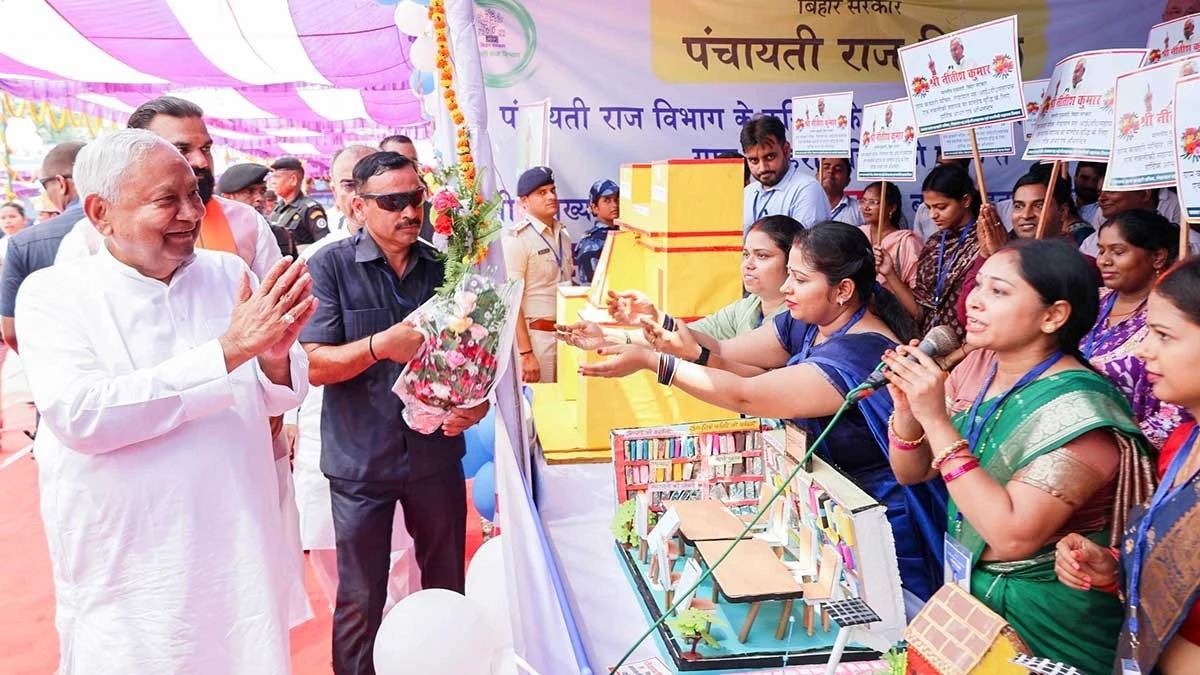The promise is simple, yet it carries enormous weight: Rs 10,000 today and up to Rs 2 lakh tomorrow. One woman in every Bihari household-provided neither she nor her husband is an income-tax payer-will receive seed money to start a business of her choice.
Six months later, if her venture shows promise, the state will add a far more substantial sum: Rs 2 lakh as capital.
The Mukhya Mantri Mahila Rozgar Yojana, applications for which are open since September 7, is being presented as a leap towards women’s self-reliance, an initiative to promote jobs and entrepreneurship. Its subtext, however, is unmistakable: empowerment and consolidation of a constituency that has stood firmly behind chief minister Nitish Kumar for two decades.
Since assuming office in November 2005, Nitish has worked with unusual consistency to cultivate women as his most durable political base. From social welfare to education, prohibition to reservations in governance, his brand of politics has placed women at the centre of Bihar’s political narrative.
If caste has long been the primary currency of electoral arithmetic, Nitish’s counter has been to fashion a very powerful gender-based vote-bank in Indian politics.
A LEDGER OF PROMISES
The new scheme is not an isolated flourish; it extends a welfare pattern Nitish has refined over time. Fifty per cent reservation for women in panchayats and urban local bodies transformed grassroots democracy. Thirty-five per cent reservation in police recruitment and Bihar government jobs changed the face of public employment.
In 2016, bowing to women’s demands, Nitish imposed liquor prohibition in Bihar. The measure remains contentious-critics cite illicit trade and lost revenue-but politically, it cemented his reputation as a leader attentive to women’s voices.
Equally symbolic were the bicycle scheme for schoolgirls, the school uniforms, scholarships and stipends, and later the JEEViKa self-help groups (SHGs) that now encompass more than 14 million women. Together, these initiatives embedded his government in the everyday lives of women across Bihar. Each policy carried a message: the state was listening, and Nitish was its chosen mentor.
WOMEN AT THE BOOTH
The dividends have been visible at the ballot box. Since 2010, women in Bihar have consistently voted in greater proportion than men. In the 2015 assembly elections, the turnout gap reached nearly 4 per cent; in 2020, women again outpaced men, consolidating their role as kingmaker. In rural Bihar, the long queues of women voters became a defining visual on polling day.
This arithmetic explains Nitish’s persistence with women-centred welfare. While other parties oscillated between caste appeals and populist subsidies, Nitish carefully stitched together a gender constituency that repeatedly backed him even in turbulent political waters. His alliances may have shifted-from the BJP to the Rashtriya Janata Dal (RJD)-Congress and back-but his women-focused policies remain constant.
Since 2005, Nitish has been the axis around which Bihar’s politics has turned-equal parts survivor, strategist and stabiliser. Beginning with the October 2005 assembly elections, every state poll-2010, 2015 and 2020-has seen a coalition led by him emerge victorious.
In parliamentary elections too, Nitish delivered emphatic mandates for the National Democratic Alliance (NDA): 32 of 40 Lok Sabha seats in 2009, 39 in 2019 and 30 in 2024. His only serious stumble came in 2014 when the Janata Dal (United) contested alone and won just two parliamentary seats, though it still polled a sizeable 16.04 per cent of the votes. Even in 2020, when the JD(U) managed only 43 assembly seats, its core voter base remained largely intact.
This durability underscores how Nitish’s vote-bank does not erode easily, even in adversity. For the BJP, that makes him more than just a fallback option-in fact, a force multiplier.
DOMICILE AND IDENTITY
The upcoming Bihar election cycle, however, is more layered. While the Mukhya Mantri Mahila Rozgar Yojana once again anchors his appeal to women, Nitish has also advanced a domicile clause in government jobs. By tightening eligibility to favour local candidates, he may have drawn criticism for exclusionary politics. Yet, Nitish knows the move resonates with Bihar’s youth-especially women-by promising to reduce ‘outside’ competition in government recruitment.
Even this gambit carries the undertone of protection: jobs for daughters of the soil, security for families, continuity of opportunity. Nitish, a master of repositioning, seems to believe that women’s loyalty gives him the latitude to pursue sharper identity politics elsewhere.
His image as a champion of women’s empowerment-offering grants, quotas and protection-has only strengthened with the domicile policy, which effectively limits reservations to Bihar’s own women.
Nitish’s survival hinges much on this constituency. Unlike caste groups, which fragment and realign with shifting alliances, women have delivered him a relatively steady bloc. In a state where poverty and patriarchy still loom large, his policies have created visible, tangible benefits: a bicycle, a job, a cash grant or prohibition on an abusive husband’s drinking.
THE OCTOBER TEST
With assembly elections due in October, the stakes could not be clearer. Nitish’s alliance with the BJP is strained, the RJD remains formidable, and public patience is frayed by economic stagnation and law-and-order concerns.
In this context, the grant under the Mukhya Mantri Mahila Rozgar Yojana may be seen less as economic policy and more as a political wager-a down payment on loyalty, with the promise of an electoral windfall.
If the Nitish government delivers this money smoothly, and if SHG networks facilitate uptake, the chief minister may once again ride to power on the shoulders of Bihar’s women. Generous yet calculated, it is both social welfare and electoral strategy. And above all, it is a reminder that in Bihar’s politics, women are not merely beneficiaries but arbiters-shaping the fortunes of a veteran politician who has staked his legacy more than anyone else on their support.
